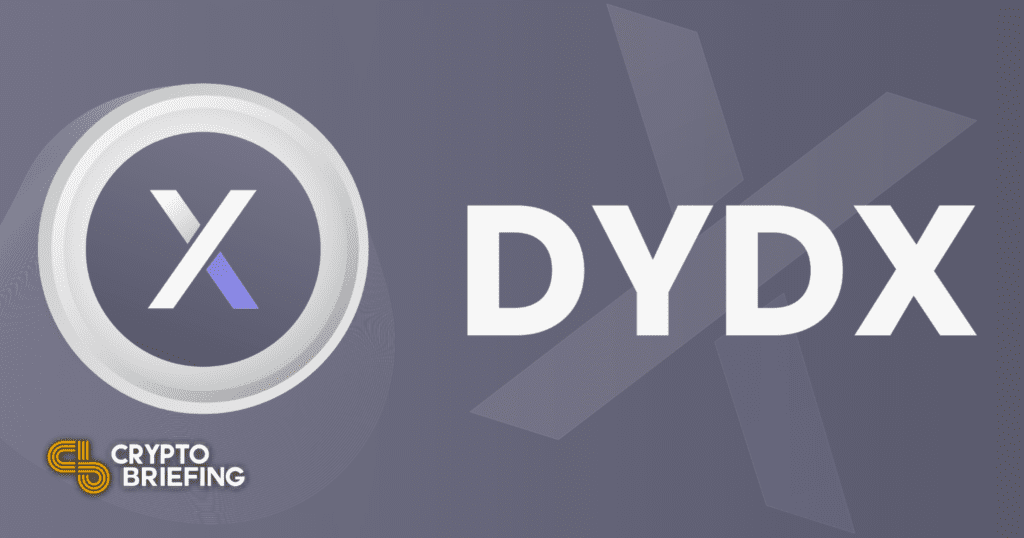
Shutterstock cover by Praveen Nanu
dYdX Ditches Ethereum for Its Own Cosmos Blockchain
Derivative DEXs are still figuring out the best way to structure their protocols.
dYdX, a decentralized exchange focused on providing perpetual contracts, is migrating away from Ethereum and spinning up its own blockchain thanks to the Cosmos SDK. The team expects the move to greatly help the protocol’s decentralization and processing capacity.
Moving With 10x in Mind
dYdX is becoming its own Cosmos-based blockchain.
The team behind the protocol announced today in a blog post a new version of dYdX which, instead of being based on Ethereum, will be its own blockchain in the Cosmos ecosystem. The upgrade, called V4, aims at fully decentralizing the protocol, which according to the team means ensuring the “decentralization of [the project’s] least decentralized component.”
dYdX is a crypto decentralized exchange (DEX) focused on the trading of perpetual contracts. While spot DEXs such as Uniswap and Sushiswap experienced tremendous growth during the bull run, dYdX and other derivative DEXs have yet to see meaningful adoption.
One of the issues plaguing derivative protocols is creating “first-class” orderbooks and matching engines (instruments that enable the “trading experience pro traders and institutions demand”) capable of dealing with the extremely high throughput required by their customers.
The Cosmos SDK was chosen by the dYdX team over other Layer 1 and Layer 2 chains because the blockchain-building framework allows protocols to decide the parameters of their own chain, and therefore to create the tools that they need. dYdX validators are expected to run an in-memory off-chain orderbook, with orders being matched in real-time by the network and the resulting trades being subsequently committed on-chain. Both orderbook and the matching engine will therefore be off-chain, yet fully decentralized.
The team believes that, following the move, dYdX will be able to multiply its processing capacity by ten. It will also require no trading gas fees, instead sporting a percentage-based trading fee structure similar to the ones centralized exchanges use. Fees will accrue to validators and stakers through the DYDX token.
The market responded positively to the announcement, with the DYDX token being up 10% on the day and trading at $1.47 at the time of writing.
Disclosure: At the time of writing, the author of this piece owned ETH and several other cryptocurrencies.
